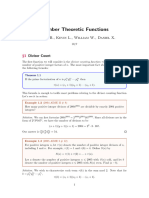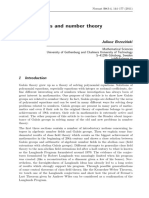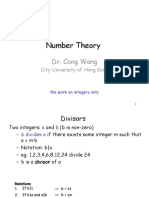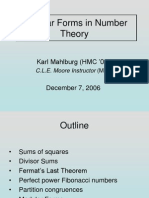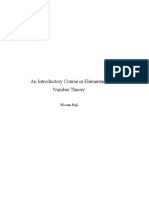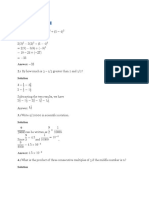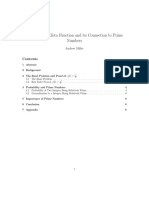0% found this document useful (0 votes)
147 views8 pagesAdvanced Topics in Number Theory
The document discusses advanced topics in number theory, including algebraic, analytic, and computational approaches that explore properties of numbers and prime distributions. Key areas covered include algebraic number theory, the Riemann zeta function, cryptography applications, and major conjectures like the Twin Primes and Goldbach conjectures. It also highlights modern developments such as the Langlands Program and the Riemann Hypothesis as significant open problems in the field.
Uploaded by
saipramod2004Copyright
© © All Rights Reserved
We take content rights seriously. If you suspect this is your content, claim it here.
Available Formats
Download as PDF, TXT or read online on Scribd
0% found this document useful (0 votes)
147 views8 pagesAdvanced Topics in Number Theory
The document discusses advanced topics in number theory, including algebraic, analytic, and computational approaches that explore properties of numbers and prime distributions. Key areas covered include algebraic number theory, the Riemann zeta function, cryptography applications, and major conjectures like the Twin Primes and Goldbach conjectures. It also highlights modern developments such as the Langlands Program and the Riemann Hypothesis as significant open problems in the field.
Uploaded by
saipramod2004Copyright
© © All Rights Reserved
We take content rights seriously. If you suspect this is your content, claim it here.
Available Formats
Download as PDF, TXT or read online on Scribd
/ 8




